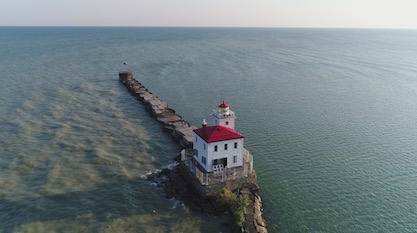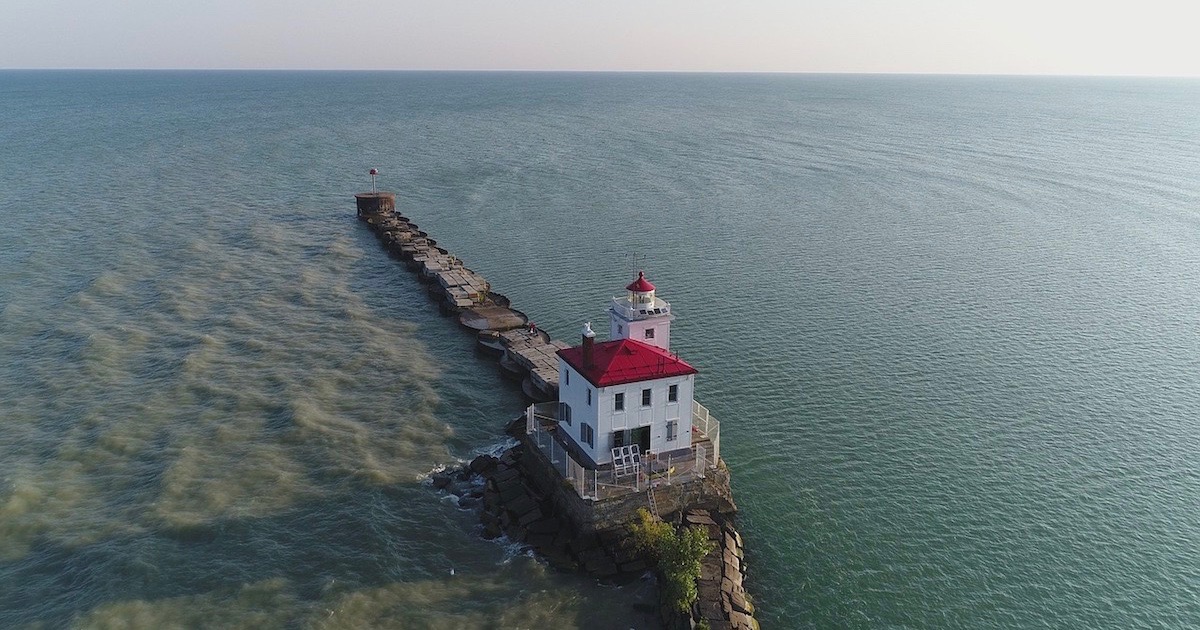 Culture & Ethics
Culture & Ethics
Lake Erie Now Has Rights


Score another victory for the “nature rights” movement. As I warned could happen, voters in Toledo just passed a law granting Lake Erie human-type rights, indeed, a “Bill of Rights” all its own. From the UPI story:
The Lake Erie Bill of Rights passed a special election vote Tuesday, giving the fourth largest of the Great Lakes “the right to exist, flourish and naturally evolve.”
A Right to Evolve
If Lake Erie has the right to “naturally evolve,” doesn’t that mean it is considered a living entity? Doesn’t that mean humans have no right to interfere with its natural state in any way whatsoever? Some shrug and say that labels aren’t all that important, that granting rights to nature is just another means of protecting the environment using a different lexicon.
No, it’s not. The “nature rights” movement is profoundly subversive, both to human exceptionalism, our liberty, and the important concept of “rights,” itself.
Think about it. If nature has rights, that means everything does, which devalues “rights” just as a wild inflation deflates the worth of currency.
The point of nature rights isn’t just to prevent pollution — laws can do that through prohibiting certain practices, requiring environmental impact reports, through zoning, etc. Rather, the radicals who are leading this agenda wish to thwart capitalism and human thriving. Nature-rights laws accomplish this by transforming courts into enforcers of green ideology:
The new law gives citizens of Toledo the right to sue any other person, farm or corporation violating the lake’s rights — such as a company, farm or government municipality that is polluting the lake.
Any citizen now has standing to sue to prevent any purported use of land or water that could be construed to interfere with the lake’s new rights.
Threat of Greenmail
Even if the radicals ultimately lose, they now have the ability to engage in “greenmail,” i.e., coercing companies to pay for their pet projects under threat of litigation. Besides, what company or individual is going to risk the increased likelihood of litigation by engaging in enterprises or developments to which the most extreme radicals object? Imagine the problems now just to obtaining liability insurance.
So, why did the people of Toledo grant Lake Erie rights? I don’t know. Perhaps because it was a special election, only the radical environmentalists turned out. Or perhaps there was no concerted pushback or explanation that granting a geological feature “rights” isn’t a benign act intended to keep the lake clean.
Or, God help us, maybe this is what people really want. But I doubt it. From what I can tell, most remain asleep to the threat this movement poses, perhaps thinking it is too ridiculous on its face to take seriously.
That’s a problem. I see plenty of advocacy on behalf of granting rights to nature, but very little discussion of the many reasons why granting rights outside the human sphere is a very bad idea.
Here’s the score off the top of my head: Four rivers in the world have rights. Two glaciers have rights. Now, one huge lake. More than thirty U.S. cities have declared a general rights of nature within their boundaries, including Santa Monica and Pittsburgh. Ecuador has the rights of nature (Pachamama) in its constitution. Bolivia has adopted the rights of nature in its laws. Also one orangutan in Argentina has been declared a “non-human person” and granted a writ of habeas corpus to get out of a zoo.
The time to stop this agenda and restrain the radicalism is growing very short.
Photo credit: Lake Erie, by miketoler820 via Pixabay.
Cross-posted at The Corner.
